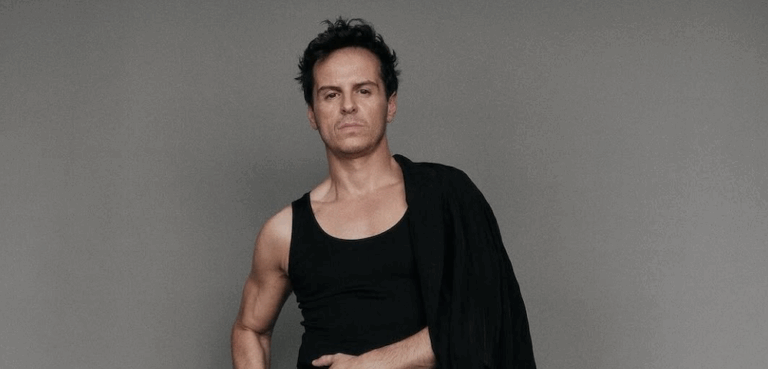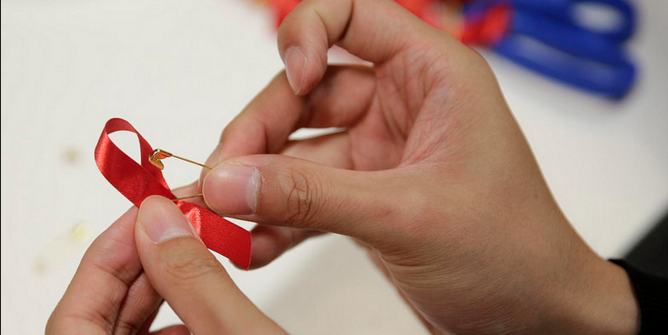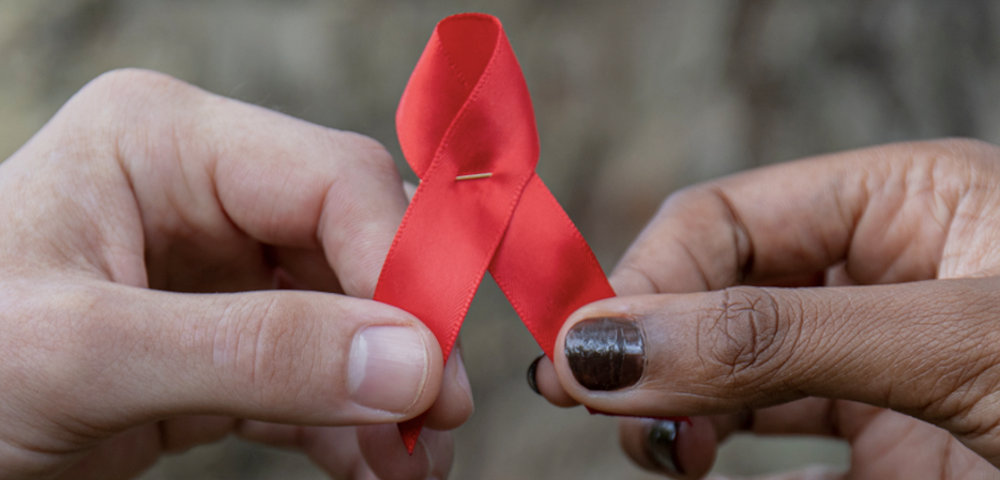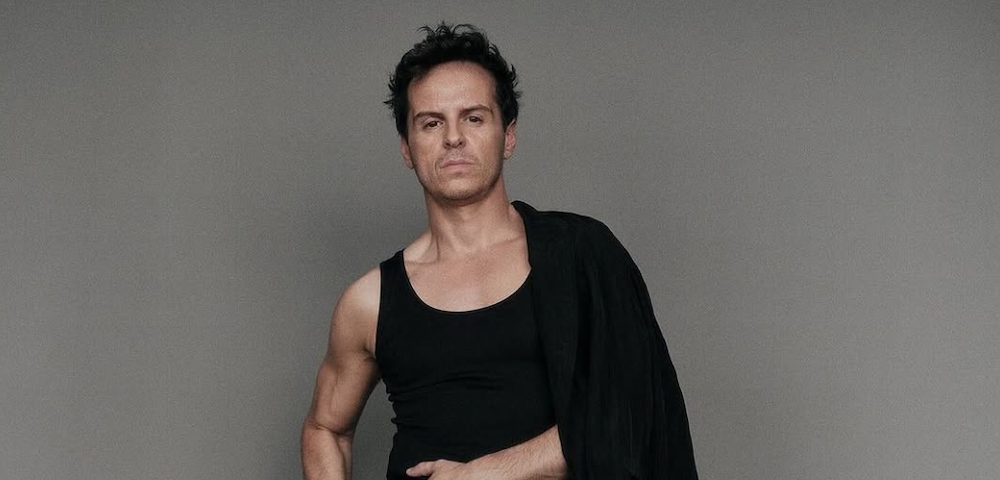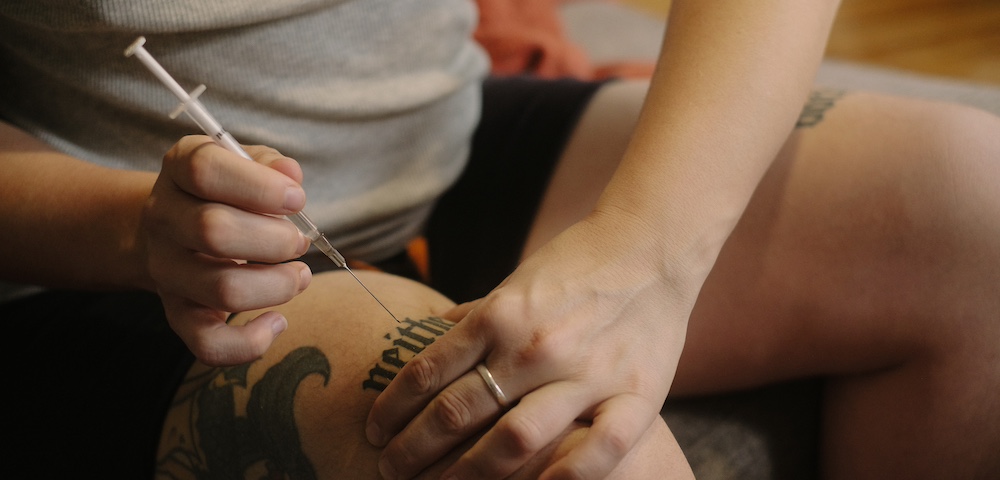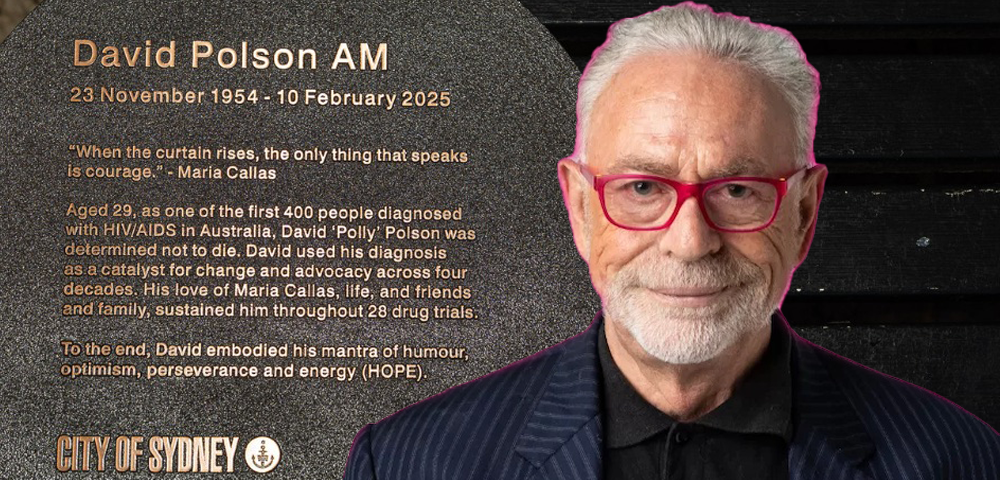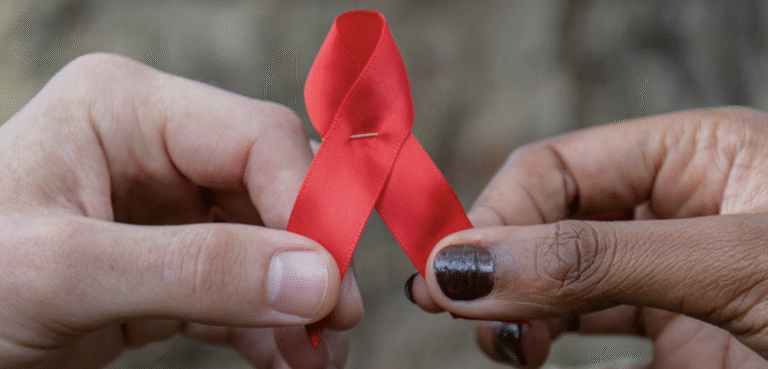


WHEN Paul Woodward disclosed his HIV-positive status while he was once out on a date, the man he was with ran out of the pub while he was at the bar buying another round of drinks. The people sitting at the adjacent table told him the man had left in a hurry, as though he’d received bad news.
“I drank both pints,” Woodward reflected.
“I waited for a couple of days… then I just thought to myself, I’m not happy for it to end like that. So I got back in touch with him and the guy was like, ‘I’m really glad you called, I’m really embarrassed about what I did. I don’t know why I did it, I just got scared.’”
Woodward suggested they meet for a coffee, and the man told him he’d been married and had only just come out of the closet.
“He was just dipping his feet into the gay scene and was scared about being part of the gay scene in general, and then one of the first people he meets is HIV positive and it was too much for him,” Woodward explained.
“So I got a chance to sit down and talk through what being positive meant just one-to-one, and you saw him just lighten and you saw how important it is to do interpersonal education like that. He really thanked me afterwards.”
Woodward is a member of the Positive Speakers Bureau, a program run by Living Positive Victoria for people living with HIV to train and support them in speaking publicly about their experiences. Organisations can hire speakers from the bureau to talk about HIV in a range of settings, helping ensure these stories are being told by positive people themselves.

Max Niggl has been running the program for 14 years. Although it has been a key part of Victoria’s response to the HIV and AIDS epidemic since the late 80s, since coming on board in 1999 Niggl has helped build the bureau into a thriving community advocacy program for people living with HIV.
When people contact the bureau looking to become a part of it, they go through an intense and rigorous training process to prepare them for the challenges of speaking publicly about living with HIV.
“Some come along very tentatively, quite scared, some come along blazing with confidence. They really, really want to do this,” Niggl said.
He explained that one of the first things they are asked to do it write a short biography about themselves.
“We ask them to do a three minute presentation based on their biography. I have never seen anyone be entirely comfortable about getting up in front of their peers to talk about being positive… It can be very, very cathartic. It’s like lifting this massive burden off their shoulders,” he said.
“But as a facilitator and as a trainer I have to be acutely aware of the emotions that this can elicit, and we do have speakers that absolutely break down when they’re being trained because this is absolutely traumatic to disclose their status. How do you support them through that? It’s got to be incredibly well structured.”

Long-standing bureau member Deanna Blegg told the Star Observer the process of disclosing her HIV status was especially difficult in the beginning, and the support of the other bureau members was vital.
“You’re exposing so much of your life, and for a lot of people there are a lot of raw emotions,” she said.
“You’re telling complete strangers in-depth details of your life, so it’s really important to be linked in to the support service that Max offers as well as the education and training around presenting yourself properly in front of a group of people.”
That early fear was unrecognisable at Blegg’s recent speech about her experiences in front of world leaders in the HIV and AIDS response at a World AIDS Day event in Melbourne, including Burmese activist and politician Aung San Suu Kyi.
John Manwaring is relatively new to the Positive Speakers Bureau, despite speaking alongside Blegg at that high-profile World AIDS Day event. He told the Star Observer he hadn’t expected to learn so much about himself and his own experiences through the program.
“It snuck up on me so slowly. I knew there was some lingering discomfort, some lingering issues around HIV and disclosure and all that, but I didn’t go into it expecting to be changed,” he said.
“I found myself remembering things and facing things that I hadn’t really considered, so in that sense it was a sort of therapy for me to have to consider these things right on the spot.”

Manwaring said it was eye-opening for him to be forced to situate his experiences of diagnosis and as a person living with HIV within the larger context of his own life.
“Even though I’ve been talking about after my diagnosis, so much about how I got to my diagnosis, the behaviour I was engaging in that led to it, all these things, this has persisted my entire life. So I need to go back further, I need to look deeper and really find out what my life has been like even before that point,” he said.
Niggl said that holistic approach to working with the speakers is central to the bureau.
“They are not merely commodities to trade in a marketplace, they are real people dealing with a significant chronic illness. We have to acknowledge periods of wellness and periods of illness,” he said.
He also stressed the importance of helping speakers understand the potential for serious personal ramifications from the program, particularly for the newly-diagnosed. He said the training process could be a very different experience from one speaker to another.
“You identify the ones who are going to rapidly progress and become outstanding speakers, and you also identify the ones that you’re going to need to go gently with,” Niggle said.
While she acknowledged the role being a speaker has played in her own journey to self-acceptance and self-confidence, like the others, Blegg made it clear she was doing it to make a difference.
“My main motivation is to show the face of people living with HIV,” she said.
“I figure as long as we all stay silent and stay hidden, how are we going to educate the community?”
For more information about Living Positive Victoria’s Positive Speakers Bureau visit www.livingpositivevictoria.org.au/speakers.
